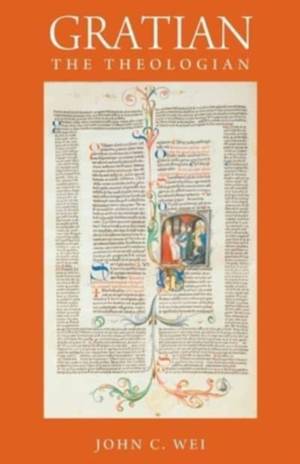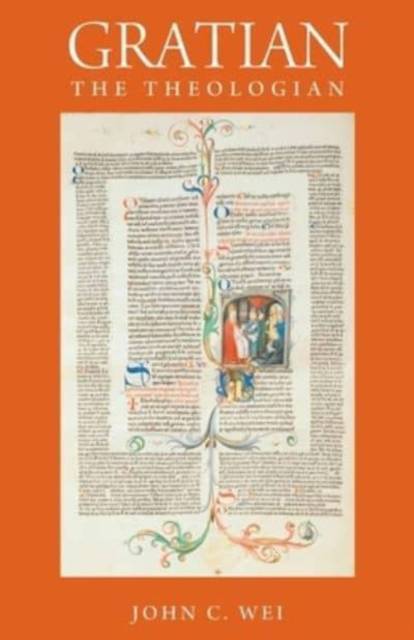
- Afhalen na 1 uur in een winkel met voorraad
- Gratis thuislevering in België vanaf € 30
- Ruim aanbod met 7 miljoen producten
- Afhalen na 1 uur in een winkel met voorraad
- Gratis thuislevering in België vanaf € 30
- Ruim aanbod met 7 miljoen producten
Omschrijving
Gratian the Theologian shows how one of the best-known canonists of the medieval period was also an accomplished theologian. Well into the twelfth century, compilations of Church law often dealt with theological issues. Gratian's Concordia discordantium canonum or Decretum, which was originally compiled around 1140, was no exception, and so Wei claims in this provocative book. The Decretum is the fundamental canon law work of the twelfth century, which served as both the standard textbook of canon law in the medieval schools and an authoritative law book in ecclesiastical and secular courts. Yet theology features prominently throughout the Decretum, both for its own sake and for its connection to canon law and canonistic jurisprudence. This book provides an introduction to and reassessment of three aspects of Gratian's theology: his use of the Bible and biblical exegesis; his penitential theology; and his handling of the other sacraments and the liturgy. The manuscript discoveries and methodological breakthroughs of the past few decades have rendered older accounts of Gratian's theology obsolete. This book reappraises Gratian's theological views and doctrines in light of recent scholarly advances, particularly the discovery of new theological sources that Gratian appears to have known and used and the discovery of the first recension of the Decretum, which differs in significant ways from the considerably longer vulgate text that scholars have traditionally relied upon. In the process, this book also uncovers new evidence concerning Gratian's intellectual background and milieu and provides new insights into the Decretum's composition, structure, and development. Ultimately, this book does more than just enhance our understanding of Gratian the theologian. It also contributes significantly to our knowledge of Gratian the jurist and to the world of theology and law in which he worked.
Specificaties
Betrokkenen
- Auteur(s):
- Uitgeverij:
Inhoud
- Aantal bladzijden:
- 288
- Taal:
- Engels
- Reeks:
- Reeksnummer:
- nr. 13
Eigenschappen
- Productcode (EAN):
- 9780813236353
- Verschijningsdatum:
- 12/02/2016
- Uitvoering:
- Paperback
- Formaat:
- Trade paperback (VS)
- Afmetingen:
- 140 mm x 216 mm
- Gewicht:
- 471 g

Alleen bij Standaard Boekhandel
Beoordelingen
We publiceren alleen reviews die voldoen aan de voorwaarden voor reviews. Bekijk onze voorwaarden voor reviews.











